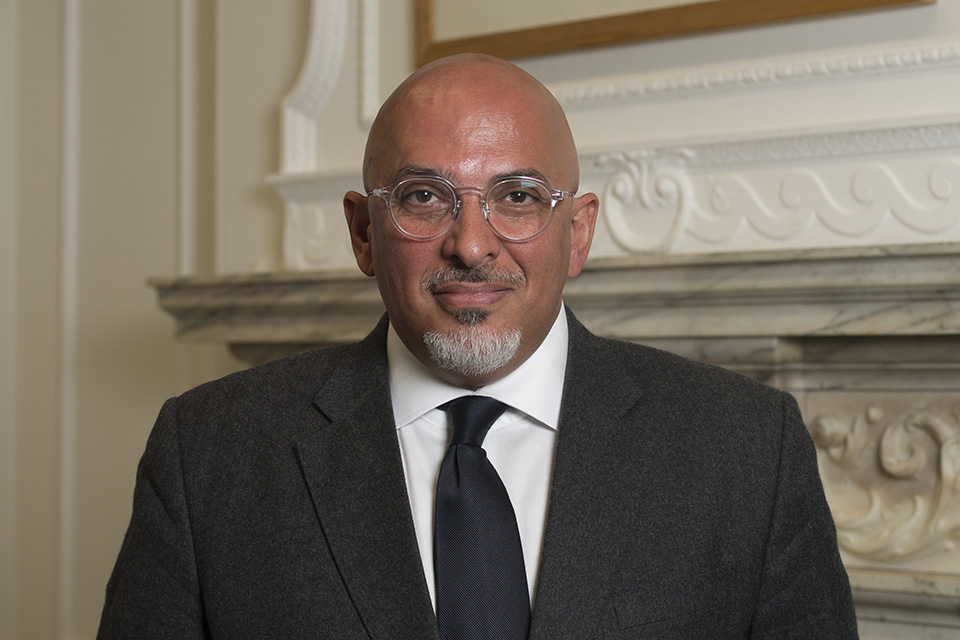New measures to reduce student absence

As part of the Education Secretary’s commitment to make school attendance his top priority, new expert attendance advisers with decades of first-hand experience are to begin work to reduce pupil absence.
- Government attendance advisors to start work helping local areas and school trusts put new plans in place to increase attendance
- Former head teachers and local authority leaders to support schools to boost attendance, with approaches tailored to their specific needs.
- Schools Minister calls for everyone working with children to help break down barriers to them being in school
They will work with local authorities and multi-academy trusts who have been identified as having potential to benefit from the support and who want to use the expertise of the advisers to help re-engage persistently absent pupils.
The Department has also identified schools with some of the greatest decreases in absence rates over a five-year period prior to the pandemic, and that have maintained their excellent approach. They will be sharing their approach with other schools in a variety of ways over the coming weeks and months, to help reduce high absence rates.
Schools Minister Robin Walker yesterday (Thursday 25 November) visited one of the schools with above average attendance rates, London Academy, to see their approach first-hand.
He used the visit as an opportunity to call on everyone who works with children, whether that be teachers and headteachers, social workers, youth workers or parents themselves, to help break down barriers to those children being in school.
As recovery from the impact of the pandemic continues, it has never been more important for children to have the maximum possible time with inspirational teachers in a classroom environment that is best for learning and helps them fulfil their potential.

Schools Minister Robin Walker said:
“It has been fantastic to see how through a combination of data, proactivity and a focus on children’s wellbeing, a school like the London Academy has driven up attendance and reduced persistent absence. Every lesson that we can prevent a child from missing is another building block to their life chances, development and wellbeing.
“My department is channelling all its efforts to provide support and guidance to help schools, local authorities and multi-academy trusts take action to increase attendance, and I ask that everyone working with children does everything in their power to help break down any barriers to them attending school.
“I recognise that covid is still with us and causing some unavoidable absence – but this is all the more reason that we must all take action to address every avoidable reason for a child not being in school.”

Kevin Courtney, Joint General Secretary of the National Education Union, said:
“Schools work hard every day to engage and support pupils who for whatever reason are absent from class. School leaders are no strangers to the diverse causes of absenteeism, and have procedures in place to work on relationships with families and build a way back for pupils who have become disengaged from learning.
“This work is important but can often be time consuming. Any support forthcoming is to be welcomed, but it is also incumbent on Government to recognise its role in some of the causes of school absence. This ranges from a narrow and arid curriculum driven by a culture of testing which drains much of the pleasure away from learning, right through to the turbulence that disadvantage and poverty can bring to families – where children may often have to take on carer roles themselves. We must also consider the sheer number of SEND pupils as yet undiagnosed, and the mental health issues which have only increased during the pandemic. Fining parents and punishing students is not the approach that will address these issues.
“As the National Audit Office reported this week, the decimation of local authority support services for schools has had far-reaching consequences. This is also true of support services for families. Schools have had to pick up a lot of this work themselves, often under very challenging funding circumstances of their own and without dedicated staff. If there is to be a step-change on the issue of absenteeism then Government must take a serious look at the investment which is so obviously needed.”

Geoff Barton, General Secretary of the Association of School and College Leaders, said:
“Persistent absence is not a new problem, but it has been exacerbated by the Covid pandemic which has led to some pupils becoming more disengaged.
“The young people affected are very often those who face the greatest challenges in their lives and schools already use a range of strategies to tackle persistent absence. It is a huge focus for them.
“The idea of deploying school attendance advisers to help support this work may well be helpful. But what has certainly not helped is government cuts over the past decade that have greatly reduced the capacity of local authorities to provide support to schools and families to address attendance concerns.
“In addition, schools are endeavouring to tackle this issue within the context of extremely tight budgets caused by years of government underfunding.”
Commenting as the Department for Education announces new ‘expert attendance advisors’ to start working to help reduce pupil absence, James Bowen, director of policy for school leaders’ union NAHT, said:
“It’s important to recognise that the pandemic is still having an enormous impact when it comes to school attendance, and it remains the case that driving down infection rates is going to be key if we want to minimise the time pupils are missing in school.
“Beyond that we need to understand the different factors causing higher than usual levels of absence as they will determine how we can best support these pupils.
“When it comes to persistent absenteeism, every single school in the country will already have detailed procedures in place for working with families where pupils are persistently absent. The vast majority already use existing staff to work with families to try and improve attendance when an issue is identified – this is standard practice.
“The challenge is that tackling persistent absenteeism takes more than a quick conversation or a one-off visit, it involves hours of work to address the issue and a sustained commitment from all involved. The task has been made all the harder in recent years by budget cuts.
“Many schools simply can no longer afford a dedicated member of staff to carry out this crucial work. In addition, many local authorities have had to cut back the staff whose job it was to intervene when attendance became an issue.
“If the government really wants to tackle this issue it must be prepared to invest in the support services schools so desperately need.”
The attendance advisors will draw on their expertise as former head teachers and local authority leaders, as well as best practice from across the sector, to support local authorities and school trusts with approaches tailored to their specific needs.
They might advise how data and partnership working can be improved across local areas to identify and support children at risk of persistent absence, or how local authorities can make sure all parts of their services from social workers to housing officers are focused on breaking down barriers to attendance.
Children are passionate about this issue too. Responding to the Children’s Commissioner’s Big Ask survey, children said they “like school” and they “realised how sitting in front of the computer is no proxy for being with a teacher”.
The government is already taking action to address the range of potential barriers to good attendance that children may experience including:
- Making clear that the Pupil Premium and recovery funding, which aims to improve education outcomes for disadvantaged pupils, can be used by school leaders, who are best placed to assess their pupils’ needs, to improve attendance, as well as other behaviour or social and emotional challenges.
- Investing in two new programmes to support children and young people most at risk of serious violence or gang exploitation to help them stay engaged with their education and out of harm. £45m is being provided for new SAFE (Support, Attend, Fulfil, Exceed) and alternative provision (AP) taskforces, bringing together specialist support in schools and alternative provision settings in serious violence hotspots. The SAFE programme will also deliver targeted interventions to reduce truancy, improve behaviours, and reduce the risk of individuals failing to enter education, employment or training.
- Extending the role of Virtual School Heads – who work to raise educational standards for children in care – so there will be a local champion for children with a social worker in every local authority meaning more targeted support for these children to help improve how they engage with their education.
- Working with families who require early help through our Supporting Families programme, for example with attendance difficulties, but otherwise wouldn’t meet the threshold for social care intervention.
- Investing £17 million towards improving mental health and wellbeing support, including £9.5m to offer senior mental health lead training to around a third of all state schools and colleges in 2021/22, helping them to implement effective holistic approaches to mental health and wellbeing. This is on top of £79 million to increase mental health provision, including more mental health support teams working with schools and colleges.











Responses